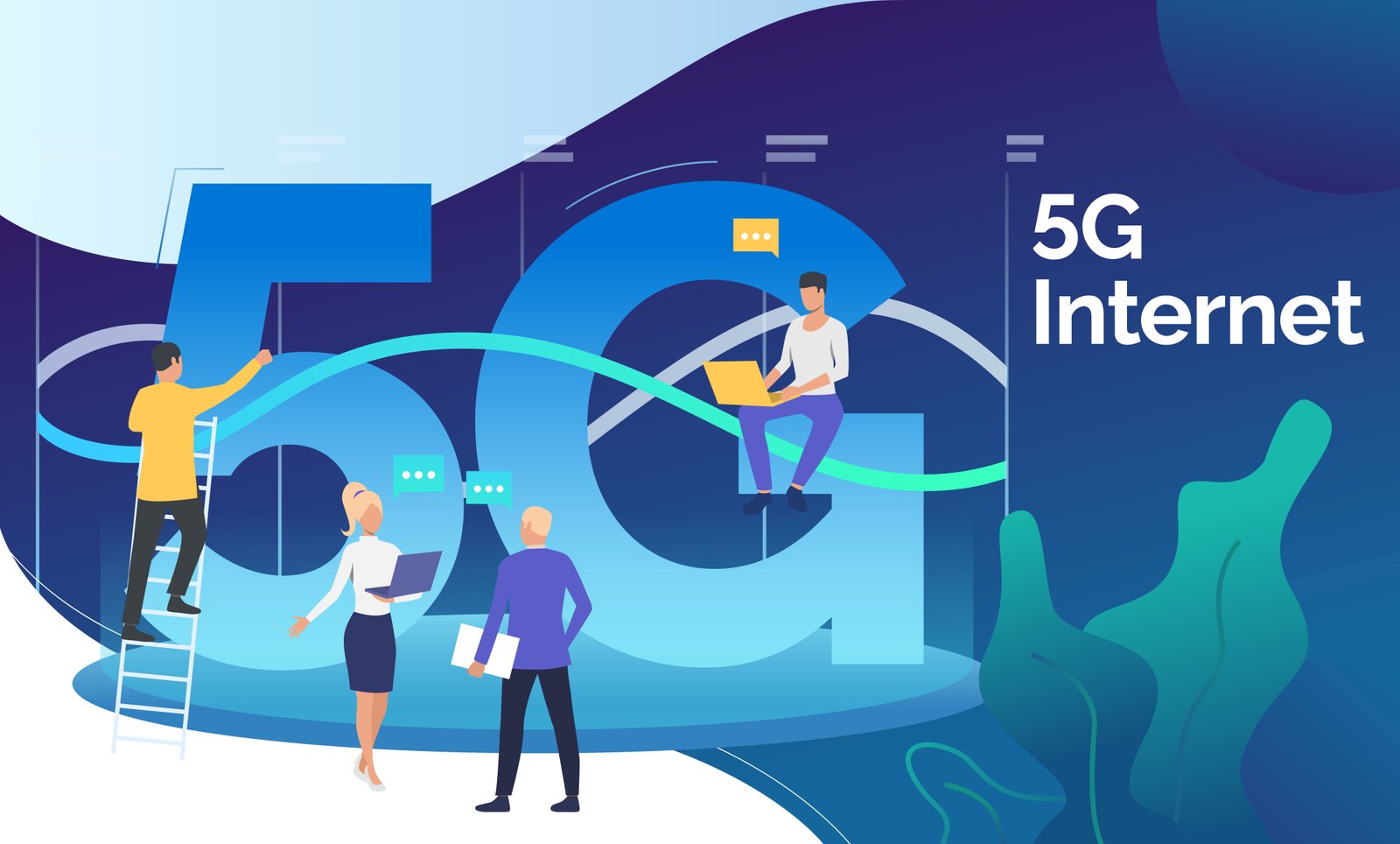Thanks to technology, 5G has significantly impacted different industries. The speed of 5G and low latency have fundamentally changed how businesses work and interact. 5G has been adopted in every sector, from healthcare to manufacturing. Speed and minimal delay in transmitting information are the merits of 5G technology. First, the speed enables rapid data processing and access to real-time business information. It perfectly suits the industries where making quick decisions and communication are key. Second, the low latency of the technology reduces delays in the data transmission process. This reduces the time spent sending on-time information to applications like autonomous vehicles and robots. Further, 5G offers higher network capacity, which implies more devices can recover resources. Industries that use IoT devices and sensors will have a chance to scale, driving productivity over time.
5G Technology in the Healthcare Industry
5G technology has increased telemedicine access in the health sector over the last few years. As such, the internet has enabled doctors to diagnose and treat patients online in real time. With COVID-19 and Kinect, doctors have been able to consult with patients via video, reducing pressure on health facilities and enabling their patients to receive appropriate care.
Moreover, 5G guarantees a high-speed network that permits monitoring patients’ vitals in real time. For example, smart wear, including the 5G connectivity feature, sends the patient’s vitals to the designated medical practitioners in real-time. This way, medics can check their patients from the comfort of their homes and act promptly if there is a suspicious change. Real-time monitoring saves time and resources while leading to more focused patient care. Additionally, 5G improves medical practitioners’ efficiency in remote areas. It provides essential information sources and specialists from whom medics in remote regions can seek advice from patients living in neglected areas. In conclusion, 5G has the potential to improve global healthcare services if embraced across the globe.
5G Technology in the Manufacturing Industry
5G Technology in the Manufacturing Industry Manufacturers enjoy improved technology based on 5G. They can now link different devices and sensors for efficient production in intelligent factories that depend on automation and AI. Production is thus intensified while downtime is curbed due to 5G technology. Manufacturers can now link machines and systems to acquire real-time production data. It is employed to pinpoint the weak points in the production line, improving efficiencies and ensuring seamless production. Of help is the predictive mechanism it uses, which helps manufacturers forecast downtime possibilities. It is hence easy to predict maintenance needs and counter them before they start through scattered databases, which guarantees optimal production. Additionally, 5G allows for easy command chains between machines and machinery labour. Hence, they relay messages instantly if there is anything alarming.
5G Technology in the Transportation Industry
The introduction of 5G is also leading to a transformation of the transportation and logistics industries. Autonomous vehicles and drones are becoming a reality, as this technology guarantees reliable and fast connectivity for cars to communicate with one another and the infrastructure. The transformation is leading to achievements such as the possibility of autonomous vehicles communicating with one another and the traffic infrastructure in real time. The result is safer and more efficient transportation. The actor hopes 5G will lead to fewer accidents, optimize traffic, and reduce travel time. The technology also allows the remote monitoring and control of autonomous vehicles, ensuring their safety and optimization. In the logistics sector, 5G technology facilitates day-to-day delivery, and the hand grocery of e-technology makes monitoring, tracking, and getting goods delivered easier. Real-time data on location, temperature, and condition facilitates decision-making and ensures the delivery of products. This level of visibility makes the supply chain more efficient and satisfying.
5G Technology in the Communication Industry
5G Technology’s Effect on the Communication Industry The introduction of 5G technology also significantly affects the communication industry. It increases speeds and enhances connections, making it possible for more reliable and top-quality voice and video calls to be made. This factor is particularly critical since many businesses conduct their affairs to video conference calls, meetings, and crew collaboration. Additionally, the 5G technology infrastructure supports and facilitates the high rise in IoT devices and applications. This factor implies that 5G connectivity permits the correlation and management of unlimited devices, from smart homes to smart cities. The connection supports businesses in introducing innovations and offering customized services. By increasing the capabilities of mobile networks, 5G technology improves the experience of the mobile phone user. For example, on smartphones, download rates are frequently high and the latency time is significantly low; thus, users experience outstanding performance.

Concerns and Challenges of Implementing 5G Technology
5G technology: benefits and challenges have stated that even with the multiple advantages brought 5G technology, it has numerous disadvantages and challenges. One of the main challenges is the immense amount of infrastructure upgrading. 5G network deployment requires the extended building of a thick web of low-cost cells or antennas, which can be costly, time-consuming, and challenging. Another concern is the impact of 5G on cybersecurity. With more devices and sent data, the network has to be very secure. Therefore, organizations and nations have to ensure they have cybersecurity mechanisms that work. Another challenge or concern is the potential impact resulting from exposure to radiation. Even though it has been shown the 5G frequencies are safe, further evidence should be done to address the radiation matter.
The future potential of 5G technology is enormous.
The technology will continue to grow and change, offering more possibilities to various industries. For example, remote surgeries and other medical procedures can be conducted with 5G’s ability to provide low latency and high reliability. 5G is also set to revolutionize manufacturing by automating and creating fully connected factories. Machines speaking to each other and cooperating in the production process can drastically reduce production costs and save companies millions of dollars. The integration of 5G with other modern technologies like artificial intelligence, blockchain, and edge computing will likely create endless opportunities in different sectors such as finance, agriculture, and energy. These technologies will help drive innovation, ensure sustainability, and give birth to new enterprises as they work together to support and promote 5G technology. Therefore, the future of 5G technology has a lot to offer.


Thanks for the recommendations on credit repair on your blog. A few things i would advice people should be to give up the actual mentality they will buy currently and shell out later. Like a society many of us tend to try this for many factors. This includes vacation trips, furniture, as well as items we want. However, it is advisable to separate your wants from all the needs. As long as you’re working to boost your credit score you really have to make some trade-offs. For example it is possible to shop online to economize or you can check out second hand merchants instead of expensive department stores for clothing.